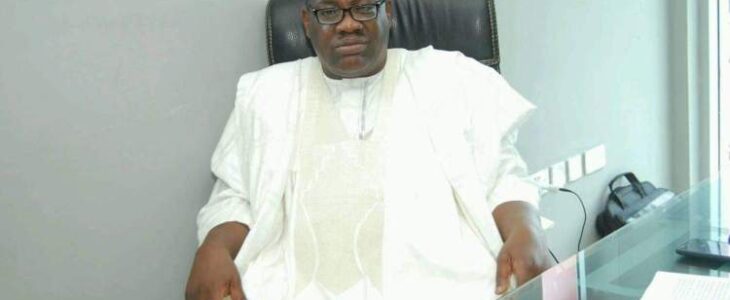
The editor-in-chief of 21st Century Chronicle, Mahmud Jega, has urged the media to desist from distorting the history of the pre-colonial Nigeria as a weapon of modern-day political battles.
He stated this on Tuesday at the launch of a book, ‘The Sokoto Caliphate’, authored by Murray Last and published by Premium Times Books.

The book gives readers a historical dive into the 19th century Sokoto Caliphate, an empire borne out of the jihad led by the 19th-century Islamic cleric, Uthman Dan Fodio.
Jega, who is the reviewer of the book, said Premium Times Books has made a major contribution towards understanding the full accounts of the Sokoto Caliphate.

According to him, the Sokoto Caliphate had been wrongly seen as an evil construct that subjugated other people.
He praised Premium Times Books for the publication of the book, to put history in the right perspective.
He said the author spent a year in Sokoto, learned Arabic and Anjemi (transliteration of Arabic), read letters, manuscripts, and pamphlets in the process of writing the book.
Stating that the Sokoto Caliphate, more than 200 years ago, was highly literate, Jega noted that the author of the book, Last, subjected himself to understanding Arabic and existing cultures of the caliphate to perfectly capture the history of the people.
He said the author traveled across the breadth of the stretch of the Caliphate, including visiting sites and libraries including the Bibliothèque Nationale De France which houses a large trove of the empire’s manuscripts stolen from Senegal.
The Emir of Zazzau, Alhaji Ahmed Nuhu Bamali, has said that future of Nigeria was dependent on collective responsibility at reformation.
Alhaji Bamali noted that going by the topic of the day, the book is one of the vital and invaluable works written on the history of the Sokoto Caliphate, adding that it is the first book written on the subject matter by a scholar whose sources are mainly written in Arabic manuscripts.
He, therefore, opined that it can thus be said to represent an essential milestone in the inquiry into the history of the 19th century, how to learn particularly about the jihad of Shehu Usman Danfodio, and the establishment of the Sokoto Caliphate.
He pointed out that the book is divided into three chapters, which he said include the gross of the Muslim community, and the cause of the jihad, the history of the 19th century caliphs concentrating on the activities within the metropolitan Sokoto and a study of the resilience of the office of the second highest ranking officer in the caliphate.
The Emir stressed that the book is distinguished by Dr. Murray Last’s heavy reliance on written Arabic sources and the fact that in the words of Hopkins, it supersedes all that was written on the subject, adding that it corrects innumerable areas and misinterpretations of previous writers.
He stressed that contrary to the writing of some Western scholars. The history of Sub-Saharan Africa, in the pre-colonial period not only accounts of conflicts and wars, which had virtually nothing to contribute to the modern day, the Sokoto Caliphate bequest an enduring legacy of the use of dialogue and application of intellectual debate in resolving intra and interstate conflicts.
Emir Bamali, therefore, advised Nigerians to draw important lessons from the enduring legacy of the Sokoto Caliphate and make efforts towards reformation, adding that the future of the country is dependent on the collective ability of all stakeholders at reformation.
He said, “This is a praise worthy and historical precedent, deserving commendation and emulation by the civilized countries of today. This African Islamic diplomatic history is typified in the discourse of the triangulate of these founding Islamic scholars of the Sokoto Caliphate, Shehu Danfodio, his brother Abdullahi and his son Muhammad Bello.
“The differences and advice on policies demonstrate not only a lively intellectual discuss, and debate, but also dynamism and responsiveness of the Sokoto leadership to the challenges of the governance of governing. A new multicultural state.
“The difference of opinion between a blind and below for example, on the ransoming of war prisoners held by Socata force is an example of the role of intellectual dialogue in the formulation of government policies.”
Credit: Leadership
